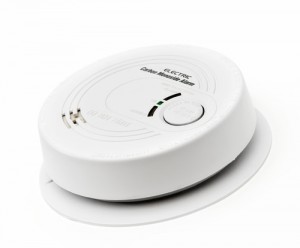Carbon monoxide (CO) poses one of the most serious hazards you face indoors and sometimes out, and the only way to tell if it's present is with carbon monoxide detectors. Because it's colorless, tasteless and odorless, this gas poses a serious risk to your health, as it replaces the oxygen in your bloodstream and can be fatal.

Fortunately, CO detectors are easily available and affordable as battery-operated devices, plug-in or hard-wired units. Choosing them with convenience in mind is important, but a few other factors exist that may influence the types you choose, like:
- At-risk factors. Not everyone handles CO the same. Those with heart or respiratory problems, pregnant women and infants have a lower tolerance. Standard CO detectors are set to trigger the alarm at higher levels of CO or lower levels over a prolonged period. If you have someone at risk in your family, it's a good idea to choose a high sensitivity detector that's calibrated to sound the alarm at lower levels of CO.
- Aging combustion appliances. Some hard-wired and plug-in detectors show a periodic readout of CO levels. Using these instead of battery-operated carbon monoxide detectors give you a better idea of how the much the CO levels build when the heating system, water heater or gas dryer runs. If they rise when they run, you'll have early warning that these appliances need servicing immediately.
Because symptoms can mimic other conditions, like the flu, fatigue, sleepiness, headaches or nausea, it's a good idea to have a detector within 15 feet of bedrooms and preferably on each level of your home. They need to be placed 15 feet away from any fuel-using appliance to reduce false alarms. The battery-operated devices need to be checked monthly and those that use battery back-up, once a year.
Depending on your carbon monoxide detectors helps you stay safer throughout the year, as is an annual check-up of your home's heating system. To learn more, contact Rodenhiser Plumbing, Heating & Air Conditioning. We proudly provide expert services for homeowners along the Route 495/128 area of Medway MA.
Image via Shutterstock.com